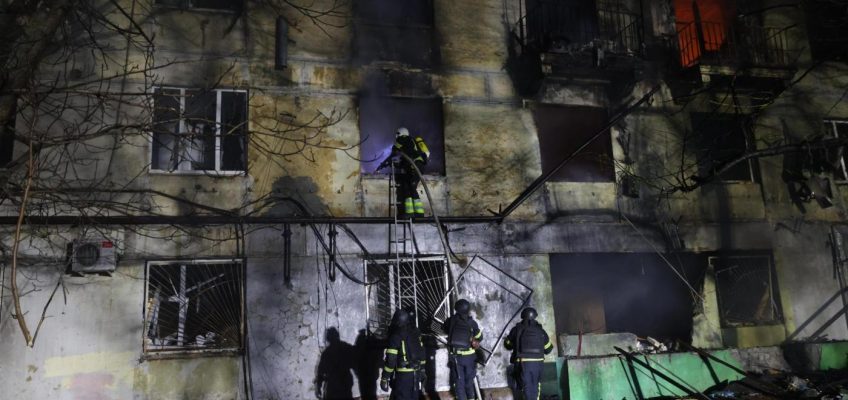By SHELBY LUM and LAURAN NEERGAARD
A doctor advising … sleepaway camp? That’s how a 12-year-old diagnosed with lupus found himself laughing on a high-ropes course as fellow campers hoisted him into the air.
Related Articles
ByHeart baby formula from all lots may be contaminated with botulism bacteria, tests show
They relied on marijuana to get through the day. But then days felt impossible without it
Higher gun ownership rates lead to more gun homicides of pregnant women, new study says
More people are addicted to marijuana, but fewer of them are seeking help, experts say
Conflicting advice on COVID shots likely to ding already low vaccine rates, experts warn
“It’s really fun,” said Dylan Aristy Mota, thrilled that he got a chance at the rite of childhood — thanks to doctors reassuring his mom that they’d be at this upstate New York camp, too. Dylan felt good knowing if “anything else pops up, they can catch it faster than if we had to wait til we got home.”
It may sound surprising but diseases like lupus, myositis and some forms of arthritis — when your immune system attacks your body instead of protecting it — don’t just strike adults. With the exception of Type 1 diabetes, these autoimmune diseases are more rare in kids but they do happen.
People often ask, “Can kids have arthritis? Can kids have lupus?” said Dr. Natalia Vasquez-Canizares, a pediatric rheumatologist at Children’s Hospital at Montefiore, which partnered with Frost Valley YMCA last summer so some of those youngsters could try a traditional sleepaway camp despite a strict medicine schedule and nervous parents.
“Imagine for an adult, it’s difficult. If you have that disease since you’re young, it’s very difficult to, you know, cope with,” she said.
Special challenges for kids
The younger that someone is when certain illnesses hit, especially before puberty, the more severe symptoms may be. And while genes can make people of any age more vulnerable to autoimmune conditions, usually it takes other factors that stress the immune system, such as infections, to cause the disease to develop.
Dr. Natalia Vasquez-Canizares, right, examines Ethan Blanchfield-Killeen, 11, of Yonkers, N.Y., who has a form of juvenile idiopathic arthritis, at the Frost Valley YMCA sleepaway camp in Claryville, N.Y., Thursday, July 31, 2025. The camp partnered with Children’s Hospital at Montefiore so kids with autoimmune diseases could attend for the first time. (AP Photo/Matt Rourke)
But genes are more to blame when disease strikes early in life, said Dr. Laura Lewandowski of the National Institutes of Health who helps lead international research into genetic changes that fuel childhood lupus.
Symptoms among children can be sneaky and hard to pinpoint. Rather than expressing joint pain, a very young child might walk with a limp or regress to crawling, Vasquez-Canizares said.
“Before, I looked like everybody else, like normal,” Dylan said. Then, “my face turned like the bright pink, and it started to like get more and more red.”
His family thought it must be allergies, and Dylan recalled many doctor appointments before being diagnosed with lupus last January.
Treatment has unique challenges, too. Medicines that tamp down symptoms do so by suppressing young immune systems — just as they’re learning to fend off germs. They can also can affect whether kids build strong bones.
Research underway to help kids
But there are promising treatments in development. Seattle Children’s Hospital recently opened the first clinical trial of what’s called CAR-T therapy for pediatric lupus. Those “living drugs” are made by reprogramming some of patients’ own immune soldiers, T cells, to find and kill another type, B cells, that can run amok. Tests in adults with lupus and a growing list of other autoimmune diseases are showing early promise, putting some people in long-term, drug-free remission.
Ethan Blanchfield-Killeen, 11, center right, of Yonkers, N.Y., who has a form of juvenile idiopathic arthritis, plays a game of paint tag at the Frost Valley YMCA sleepaway camp in Claryville, N.Y., Wednesday, July 30, 2025. The camp partnered with Children’s Hospital at Montefiore so kids with autoimmune diseases could attend for the first time. (AP Photo/Matt Rourke)
And occasionally a mother’s autoimmune disease can harm her child, such as a rare fetal heart defect that requires a lifelong pacemaker if the baby survives. Dr. Jill Buyon at NYU Langone Health is studying how to block that defect — and just reported a healthy girl born to a mom with mild lupus.
“This is a rare example where we know the exact point in time at which this is going to happen,” allowing a chance at prevention, said Dr. Philip Carlucci, an NYU rheumatology fellow and study co-author.
What happens: A kind of antibody, found in lupus, Sjögren’s and certain other autoimmune diseases, can damage the heart’s ability to beat properly if enough crosses the placenta during key cardiac development. Some treatments can lower but not eliminate the risk. Buyon’s team is testing if a drug used to treat a different autoimmune disease could better shield the fetus.
Kelsey Kim jumped at the experimental treatment in her last pregnancy, “partly in the hopes of saving my own baby and partly in the hopes of saving other people’s babies and saving them from the pain that I had experienced.”
Dylan Aristy Mota, 12, of New York City, who has lupus, is hoisted in the air by fellow campers during an activity at the Frost Valley YMCA sleepaway camp in Claryville, N.Y., Wednesday, July 30, 2025. The camp partnered with Children’s Hospital at Montefiore so kids with autoimmune diseases could attend for the first time. (AP Photo/Matt Rourke)
Her first daughter was born healthy although doctors didn’t mention the baby’s temporary lupus-related rash was a warning that future pregnancies might be at risk. Kim then lost a son to congenital heart block at 22 weeks of pregnancy. Her second daughter’s heart sustained milder damage, and she’s now a thriving 2-year-old thanks to a pacemaker.
A third daughter was born healthy in June after Kim got the experimental drug in weekly visits, spanning about three months, to NYU from her northern Virginia home. A single case isn’t proof, and Buyon has NIH funding to start a clinical trial for other high-risk pregnancies soon.
Helping kids be kids
Back at the New York sleepaway camp, the goal was some normalcy for kids ruled by strict medication schedules that can make it difficult to be away from family.
Dylan Aristy Mota, 12, of New York City, who has lupus, walks out of the water doing an evening swim at the Frost Valley YMCA sleepaway camp in Claryville, N.Y., Wednesday, July 30, 2025. The camp partnered with Children’s Hospital at Montefiore so kids with autoimmune diseases could attend for the first time. (AP Photo/Matt Rourke)
“I do kind of get to forget about it,” Ethan Blanchfield-Killeen, 11, said of the form of juvenile idiopathic arthritis — similar to rheumatoid arthritis in adults — that can leave his joints stiff and achy.
One day a doctor examined his hands at camp. Another day, he was running across the lawn splattered in a fierce game of paint tag.
“Just seeing them in a different perspective” than the sterile doctor’s office “almost brings tears to my eyes,” said Vasquez-Canizares, the Montefiore rheumatologist.
The Associated Press Health and Science Department receives support from the Howard Hughes Medical Institute’s Department of Science Education and the Robert Wood Johnson Foundation. The AP is solely responsible for all content.




